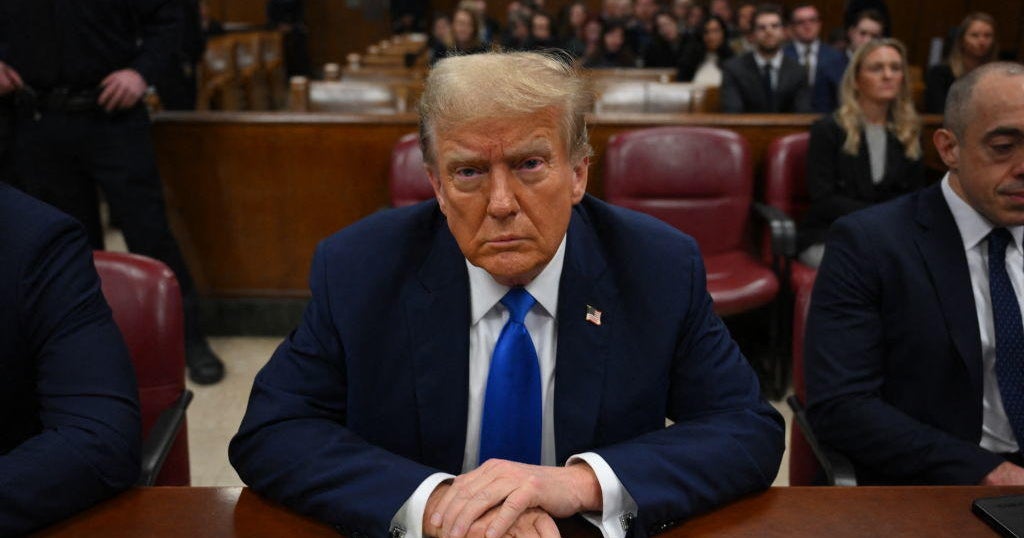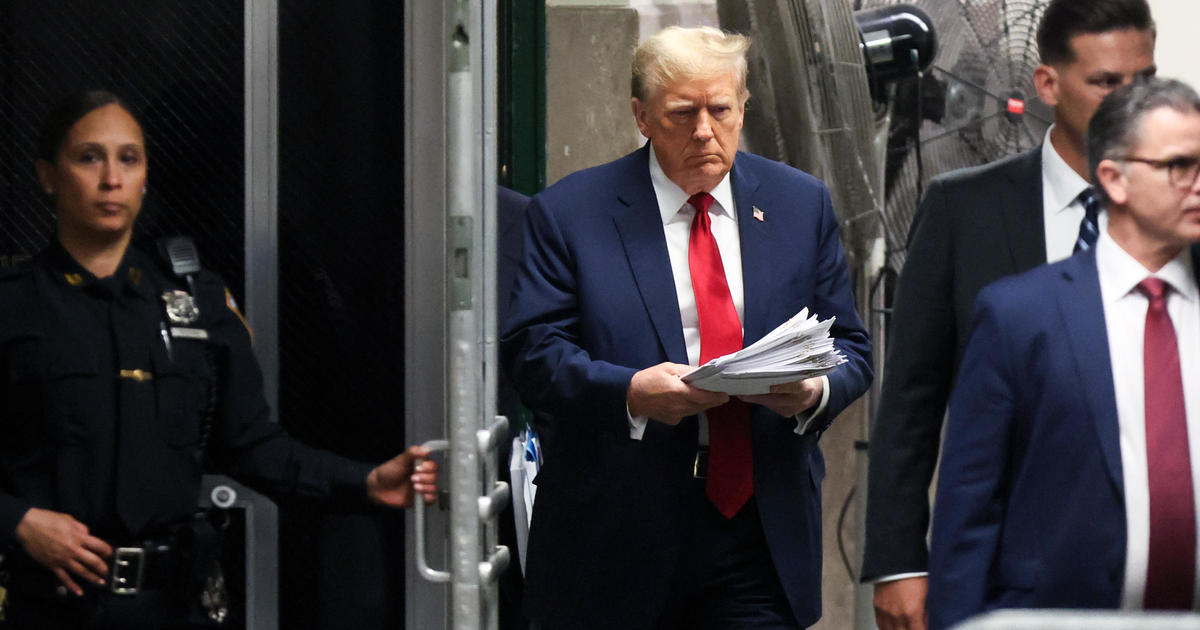Bipartisan Senate Intel report backs intelligence assessment of 2016 Russian interference
The Senate Intelligence Committee on Tuesday reaffirmed the accuracy and integrity of a 2017 joint assessment by U.S. intelligence agencies, who determined that Russia's coordinated campaign to influence the 2016 presidential election was meant to benefit President Trump.
The committee's review is the fourth and penultimate chapter resulting from the committee's investigation into the Russian government's actions, a probe that has spanned more than three years.
In its heavily redacted 158-page report, the committee found that the Intelligence Community Assessment (ICA) commissioned by former President Barack Obama in late 2016 "presents a coherent and well-constructed intelligence basis for the case of unprecedented Russian interference in the 2016 U.S. presidential election." The report was unanimously approved by senators on the committee.
"The ICA reflects strong tradecraft, sound analytical reasoning, and proper justification of disagreement in the one analytical line where it occurred," Republican Senator Richard Burr, the committee chairman, said in a statement accompanying the report's release. "The Committee found no reason to dispute the Intelligence Community's conclusions."
A declassified version of the ICA — which was compiled by the CIA, FBI, National Security Agency (NSA) and Office of the Director of National Intelligence (ODNI) and is otherwise highly classified — was released publicly on January 6, 2017.
The committee review said interviews with those involved in drafting the ICA showed that "analysts were under no politically motivated pressure to reach specific conclusions."
"All analysts expressed that they were free to debate, object to content, and assess confidence levels, as is normal and proper for the analytic process," the report said. The panel's investigators conducted 25 interviews and hearings with more than 40 intelligence officials involved in creating the ICA.
The committee's bipartisan finding is notable given an ongoing Justice Department review of the government's investigation into Russia's election interference led by U.S. Attorney for the District of Connecticut John Durham. Durham has focused at least part of his probe on the crafting of the ICA, which has stoked concerns among intelligence officials who say a federal prosecutor's scrutiny could have a "chilling effect" on the community's analytic processes.
Among the ICA's findings that proved to be more controversial over time was the accompanying assessment that the Russian government's efforts were designed to boost then-candidate Donald Trump's chances of winning the election while damaging Hillary Clinton's. That judgment was delivered with high confidence by the CIA and FBI; the NSA had moderate confidence.
Republican allies of the president later maintained that Russia did not intervene on behalf of any one candidate, only that it intended to sow chaos in U.S. political processes. Since before he was elected, Mr. Trump himself has frequently questioned the scope and aim of Russia's interference and decried some U.S. intelligence findings as a "hoax."
The ICA's principal finding, delivered with "high confidence," was that Russian President Vladimir Putin had ordered an influence campaign aimed at the 2016 election and designed to undermine confidence in the U.S. electoral process.
The Senate Intelligence Committee previously released a brief, unclassified summary of its findings on the ICA, declaring it in July 2018 to be a "sound intelligence product" with findings that were later bolstered by continued intelligence collection. The committee faulted the assessment for providing inadequate "historical context" about Russia's previous attempts at election interference. But where agencies had different confidence levels in a finding, the committee found "analytical disagreement was reasonable, transparent, and openly debated" by the relevant analysts and agency heads.
Republicans on the House Intelligence Committee, in their own report on the matter, faulted the ICA for its judgment that Russia preferred Mr. Trump, saying agencies failed to employ "proper analytic tradecraft."
Tuesday's more comprehensive report said the committee "did not discover any significant analytic tradecraft issues in the preparation or final presentation of the ICA." It said the difference in confidence levels was the responsibility of then-CIA Director John Brennan and then-NSA director Admiral Michael Rogers, both of whom "independently expressed to the Committee that they reached the final wording openly and with sufficient exchanges of views."
"The ICA correctly found the Russians interfered in our 2016 election to hurt Secretary Clinton and help the candidacy of Donald Trump," Democratic Senator Mark Warner of Virginia, the panel's vice chairman, said Tuesday. "Our review of the highly classified ICA and underlying intelligence found that this and other conclusions were well-supported."
In one of the few sections of the report that was not completely redacted, the committee also evaluated the internal debate over the potential inclusion of materials from the dossier produced by former British intelligence official Christopher Steele.
"All individuals the Committee interviewed stated that the Steele material did not in any way inform the analysis in the ICA — including the key judgments — because it was unverified information and had not been disseminated as serialized intelligence reporting," the report said. At the apparent insistence of FBI officials, the material was "instead included in Annex A of the compartmented ICA."
"FBI officials told the Committee that they 'would have had a major problem if Annex A had not been included,'" the panel wrote.
The committee said the ICA would have benefitted from including more context about previous Russian election interference efforts and noted that the group assembling it, despite being tasked by President Obama with producing a set of policy recommendations about how to prevent future foreign incursions, did not include them.
"The absence of policy recommendations was deliberate, due to the well-established norm that the IC provides insight and warning to policy makers, but does not itself make policy," the report said.
It also reiterated that subsequent intelligence collection had strengthened the ICA's initial findings. "Since January 2017, the Committee has discovered additional examples of Russia's attempt to sow discord, undermine democratic institutions, and interfere in U.S. elections," the report said.
The U.S. intelligence community has continuously warned that Moscow would again attempt to interfere in the 2020 presidential election, likely using more sophisticated tactics. The question of whether Russia would show support for a particular candidate has already proven politically divisive.
In February, Mr. Trump abruptly dismissed acting Director of National Intelligence Joseph Maguire after ODNI official Shelby Pierson told the House Intelligence Committee in a classified briefing that Russia had developed a "preference" for Mr. Trump in the 2020 election. In a subsequent briefing to all members of Congress, administration officials said they had "nothing to support" the notion that Putin favored one candidate over another. Pierson was excluded from the latter briefing.
The Senate Intelligence Committee released three previous volumes of its final product. The first focused on election security and was made public in July 2019. It was followed by a second, released in October 2019, on the coordinated campaign Russia waged on social media. The third evaluated the Obama administration's response to Russia's efforts.
The fifth and final volume, which is still being drafted, is focused on the counterintelligence concerns stemming from any U.S. political campaign links to Moscow.



